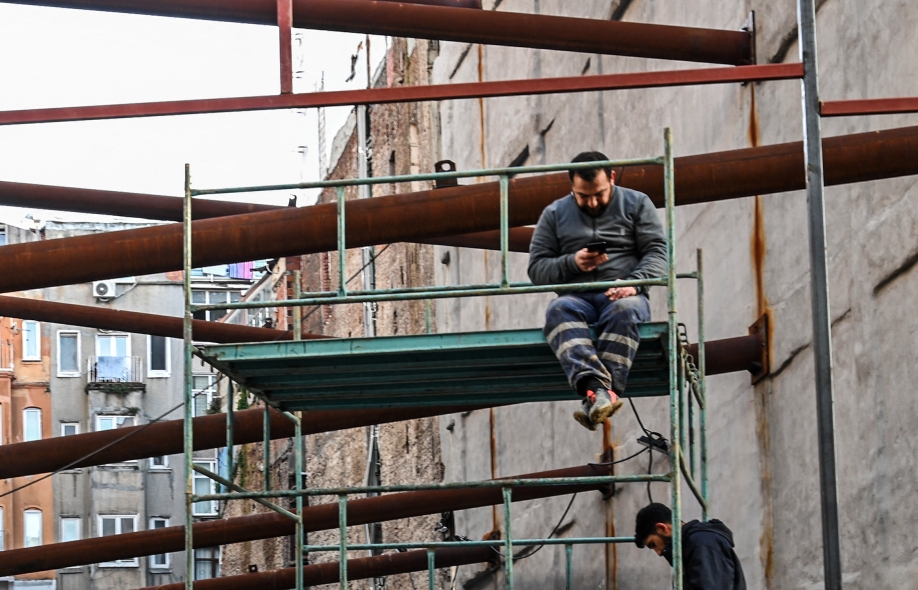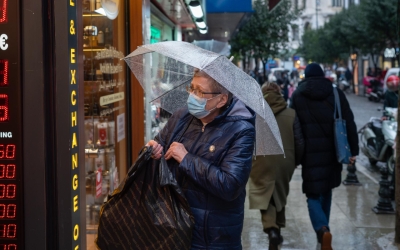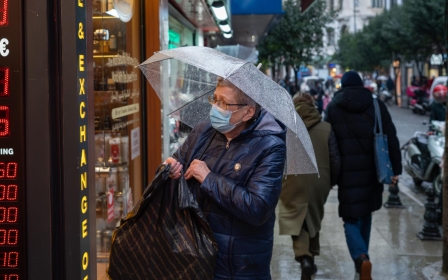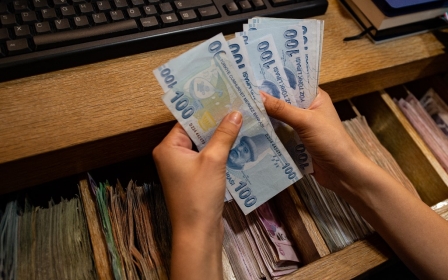Turkey lira crisis: Erdogan increases minimum wage by 50 percent after further rate cut

Turkish President Recep Tayyip Erdogan announced on Thursday that the country's minimum wage would be increased by around 50 percent next month.
In a televised address from Ankara, Erdogan said the wage would increase to 4,250 liras ($272) per month, up from 2,826 liras ($180).
The announcement came as the Turkish lira hit new lows after the central bank fired the latest salvo in Erdogan's "economic war of independence" by cutting interest rates for the fourth successive month.
The reduction of the main rate to 14 from 15 percent comes in the face of an annual inflation rate that has surged past 20 percent and is expected to climb even higher over the next few weeks.
The lira was trading down nearly five percent after the central bank's announcement.
In his address, Erdogan said: “The increase in the minimum wage is 50 percent, and that is the highest raise in the last 50 years.
“I believe that with this increase, we have shown our determination not to allow our employees to be crushed by the price increases.
“There are some problems right now, and we will overcome these problems as soon as possible.”
More than 40 percent of workers in Turkey currently earn the minimum wage.
Erdogan said the government would also abolish both income and stamp tax on the minimum wage “to ease the burden of employers and remove possible effects on employment”.
Call for 'patience'
The lira has shed more than half its value since the start of the year, and nearly 40 percent since the start of November, as policymakers bow to Erdogan's wishes to bring down borrowing costs despite soaring inflation.
The unorthodox approach has wiped out the value of many people's saving and thrown swathes of Turkish society below the official poverty line.
A dollar could buy three liras in 2016 and 7.43 liras on 1 January. It was worth 15.5 liras on Thursday after opening the week at around the 13.8 mark.
'There are some problems right now, and we will overcome these problems as soon as possible'
- Recep Tayyip Erdogan
Erdogan has called for "patience" and argued that his approach will ultimately make Turkey less dependent on outside factors such as the scale of foreign investment and the price of imported commodities.
Analysts and diplomats believe Erdogan unleashed his pro-growth policy in a bid to revive sagging approval numbers ahead of a general election due within the next 18 months.
The Turkish president has cited China as an example as he pushes for economic growth at all costs.
China brought down the value of its currency to help exports and achieve spectacular rates of economic expansion over much of the past two decades. This created a new middle class that helped the Asian superpower achieve more sustainable consumer-driven growth.
Turkey's economy also expanded at an annual rate of 7.4 percent between July and September. But most analysts believe Erdogan's attempts to boost jobs and propel economic expansion through cheap exports are likely to end in social turmoil, AFP reported.
Official data show the price of staples such as pasta and potatoes rising by roughly 50 percent from November 2020.
Middle East Eye delivers independent and unrivalled coverage and analysis of the Middle East, North Africa and beyond. To learn more about republishing this content and the associated fees, please fill out this form. More about MEE can be found here.





